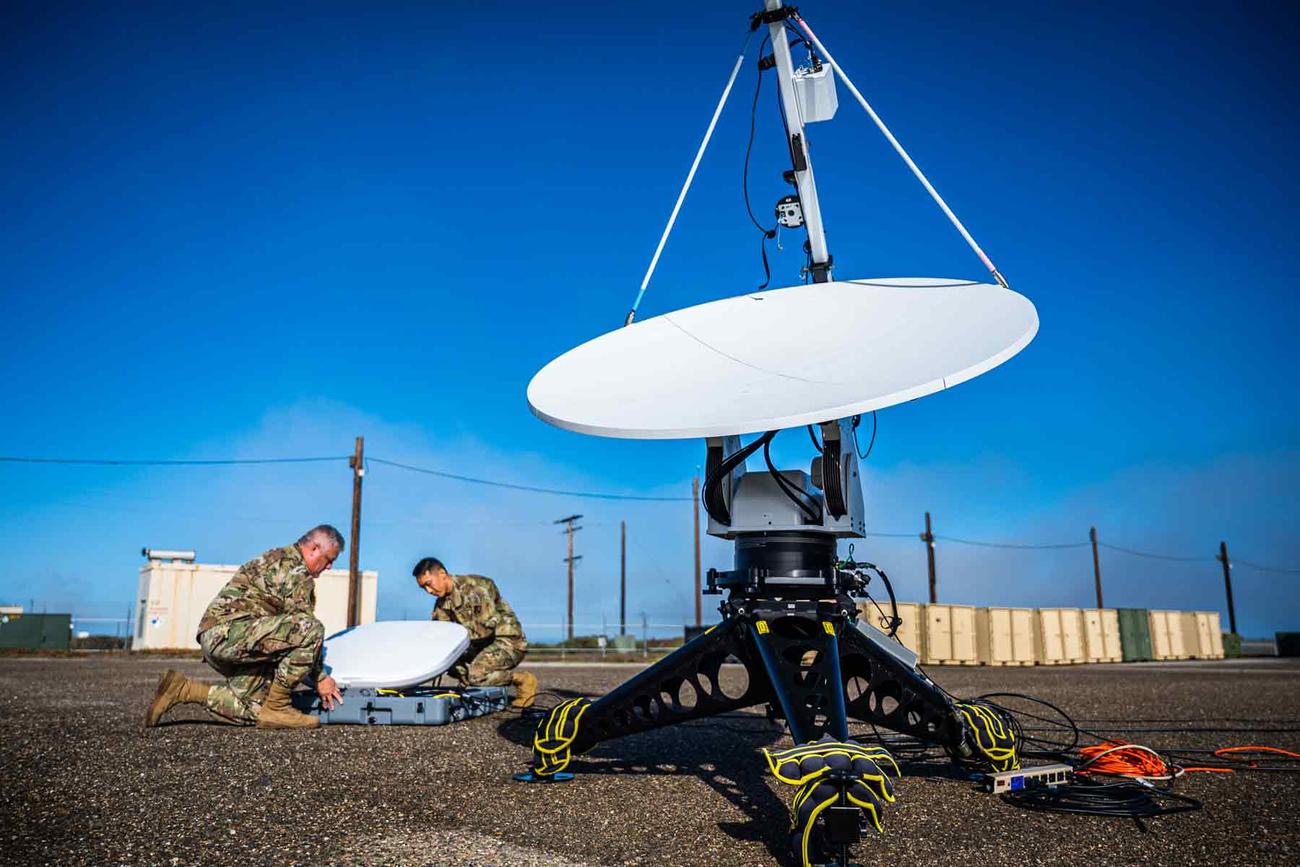

A bipartisan group of senators and congressmen are asking the chairmen and ranking members of the House and Senate Armed Services Committees to keep language in the annual defense bill that would give governor’s the final say over transferring National Guard forces to the federal government.
The letter, which was signed by 125 lawmakers, was delivered Tuesday to Sens. Jack Reed (D-R.I.) and Sen. Roger Wicker (R-Miss.), as well as Reps. Mike Rogers (R-Ala.) and Adam Smith (D-Wash.). The request comes after Military.com reported earlier this year that an Air Force legislative proposal was seeking to waive sections of U.S. law to transfer Air National Guard units with space missions into the active-duty Space Force without a state governor’s approval.
While negotiations for the 2025 National Defense Authorization Act, or NDAA, are ongoing, the House’s version of the bill would require that governors sign off on such a move, and the Senate version would allow it to go through but would limit the Guard units that could be transferred to the Space Force to six states and roughly 600 people.
Read Next: Air Force Uses B-2 Bomber for First Time in Combat Since 2017, Sending Message to Iran
The National Guard Bureau has said in the past that there are roughly 14 units across seven states, consisting of around 1,000 personnel, responsible for space missions in the Air National Guard.
The letter pushes the chairmen and ranking members to adopt the Armed Service Committees to “retain the House-passed language regarding the U.S. Air Force’s Legislative Proposal,” adding that this year’s process did not allow for amendment floor votes and that measures to push back against the Senate’s language couldn’t be considered before the full chamber.
“We recognize the urgency of the future threats facing our national security, and we support the Department of the Air Force’s efforts to prepare,” the letter reads. “We also believe that the desired end can be achieved through dialogue with affected states, without undermining the foundational principles that have guided the National Guard for over a century.”
The Air Force’s proposal earlier this year was met with swift condemnation from every governor in the country, including lawmakers on both sides of the aisle and the National Guard Association of the United States, the lobbying organization that supports the service component.
Those lawmakers and lobbyists believe that allowing the Air Force to go around current U.S. law and bypassing governors in the matter would mark a new precedent. Many are also pushing, instead, for the creation of a Space National Guard — similar to the Air Force and Army service models.
Retired Maj. Gen. Francis M. McGinn, the president of the National Guard Association of the United States, supported the lawmakers’ call in a statement Thursday.
“I wholeheartedly agree with the 125 members of the House and Senate who believe language maintaining the statutory authority of governors to oversee their National Guard forces should be included in the final fiscal 2025 National Defense Authorization Act,” McGinn said. “Should the House-passed language be stripped from the final measure, it would alter the mission of the Guard and weaken our ability to be always ready and always there.”
The Air Force, Space Force and White House, however, have pushed against the cries for a Space National Guard in the past, opting, instead, for the Space Force’s new part-time, active-duty service model — although it will take years for that to be set up, officials admitted.
In late August, the issue became a political lightning rod when former President Donald Trump told attendees at the National Guard Association of the United States’ annual convention that if he’s reelected this November, he would “sign historic legislation creating a Space National Guard.”
Related: Trump Vows to Create Space National Guard as Issue Becomes a Political Lightning Rod Among States
